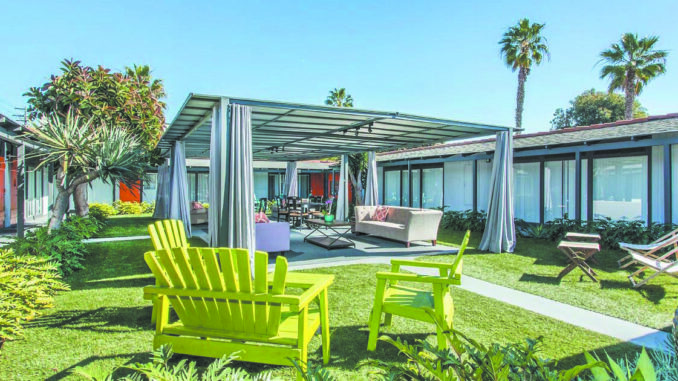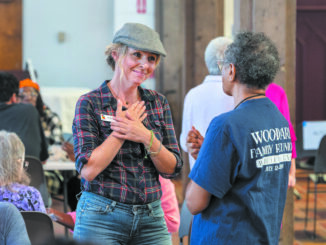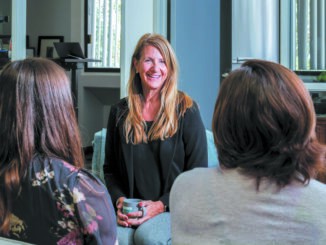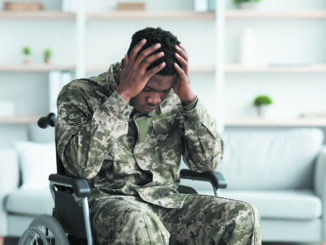
Solara Mental Health offers mixes traditional mental health techniques with practices like yoga, breathwork and Reiki
by Howard Hardee
Watching veterans self-manage strong emotions and their own mental well-being is one of the most deeply rewarding aspects of Vic Martin’s role at Solara Mental Health.
The organization holds a weekly meeting among veterans staying at Solara’s residential facilities in San Diego. During a recent gathering, Martin—Solara’s national director of community engagement—watched as an argument arose regarding a veteran using common area blankets for their pet.
“Another veteran was very upset about that, and it became fairly elevated, as you imagine it would with a bunch of veterans,” Martin says. “It was so impressive to watch [executive director Tim Doyle], who was there, sort of monitoring the level.
“It’s very rare that you see clinical therapies being married so seamlessly with alternative therapies. Not every alternative therapy is right for every veteran. They may not necessarily connect with art therapy, but they may absolutely connect with eco-therapy, working with plants and dirt and understanding that connection with nature.”
Vic Martin, National Director of Community Engagement, Solara Mental Health
“Right when I was getting uncomfortable, they started incorporating [methods] they had obviously learned in therapy,” he continues. “The gentleman who was upset sat back and started to breathe, and the other gentleman calmed down and started to change the way he was talking.”
The idea is to give veterans living with depression, anxiety, post-traumatic stress, substance use disorders and suicidal ideation a host of tools to help themselves—and each other. Solara provides a “soup-to-nuts suite” of residential and mental health services to give veterans a hand up with an assortment of life challenges, Doyle says.
“That includes housing, transportation, medication management, psychiatric management, psychotherapy, group therapy,” he says. “We do holistic therapies—yoga, breathwork, Reiki. We have an expansive assessment model that we present to all our veterans to [measure] depression, anxiety, heart-rate variability through their treatment stay in order for us to best gauge their progress or regression.”
Doyle says that 90% of Solara’s veteran population improves from the start of their stay to being discharged. And the organization’s internal statistics reflect a substantial reduction in suicide ideation among its veterans.
“It’s very rare that you see clinical therapies being married so seamlessly with alternative therapies,” Martin says. “Not every alternative therapy is right for every veteran. They may not necessarily connect with art therapy, but they may absolutely connect with eco-therapy, working with plants and dirt and understanding that connection with nature.”
Particularly innovative aspects of Solara’s programming includes allowing pets to stay with veterans, cold-plunge exposure tanks, garden boxes for tending vegetables and transcranial magnetic stimulation for hard-to-treat cases of depression.
Solara works strictly with veterans and is funded through a contract with TriWest Healthcare Alliance, acting as third-party administrator on behalf of Veterans Affairs. The facility offers “very trauma-specific therapy,” Doyle says. “We have a combat veteran group that meets multiple hours a week to discuss combat-specific issues.”
Discussions can get heated, of course. As for the pair arguing over a pet using shared space blankets? “Within 10 minutes, these guys are giving each other a hug,” Martin says, “and I’m just blown away.”
More information is available at solaramentalhealth.com.



